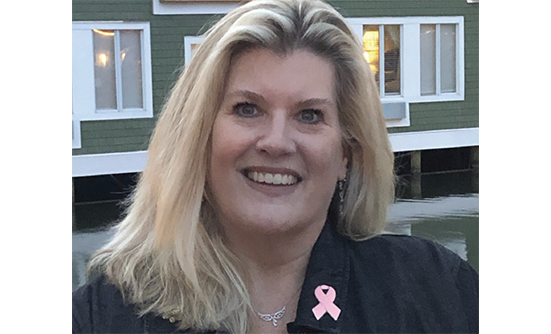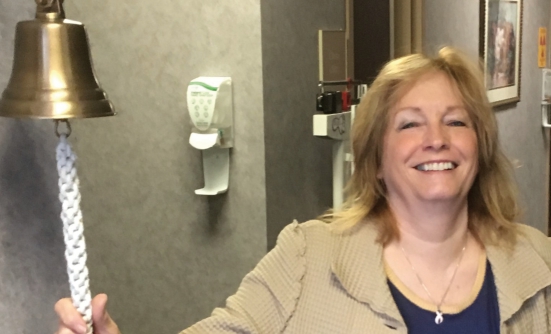Maybe you have been a patient targeted by your healthcare provider to respond to a survey asking you to gauge your satisfaction after a clinic visit or surgery. Maybe you shrugged it off, figuring that your comments would just end up in an abandoned file. But these days, the buck stops with you, the patient.
Share Your Complaints
Today more than ever before, patients are being encouraged to voice their complaints about their care and the services they receive, because the healthcare industry is trying to improve patient satisfaction. This includes cancer providers and hospital systems, which are increasingly seeking feedback from patients on how to improve care delivery. Off-the-cuff comments and more serious complaints are being used to improve care delivery to patients. Indeed, patients’ concerns are becoming providers’ concerns.

In 2017, a patient survey conducted by Jennifer W. Mack, MD, Assistant Professor of Pediatrics, Dana-Farber Cancer Institute, Boston, and colleagues, focused on complaints from patients with cancer.1 A total of 266 complaints from anonymous patients at Dana-Farber were accumulated from patients seen during a 2-year period. The complaints ranged from management to treatment procedures and illustrate the impact that providers’ attitudes and poor communication have on patients and their families. A breakdown in communication was a core concern in 41% of the complaints.1
Communication Problems
One area of complaints involved patient dissatisfaction related to unexpected inconveniences. A 41-year-old woman with breast cancer said she experienced a long waiting time to have her blood test performed, even though she got to the appointment early. This led to a delay in the start of her chemotherapy administration, which meant she couldn’t go home until late that night.
Another area of concern was staff’s skills and conduct, as reflected in a 61-year-old man with colorectal cancer who described his experience with an apparent inept nurse who made 3 attempts to access his port device, before she succeeded. He said he wanted a more experienced nurse for next time, and strongly recommended that the nurse receive additional training.
But perhaps the most serious complaints were related to breakdowns in communication. Left unaddressed, breakdown in communication between providers and patients can lead to a loss of confidence in the care team. This was the case of the husband of a 72-year-old woman with myeloma; he complained about the staff’s unresponsiveness after he had left 3 messages for the nurse practitioner, asking about his wife’s new medication; he never received a call back.
Another complaint was lodged by a 31-year-old woman with lymphoma who reported that her confirmed medical appointment was canceled without notifying her. The glitch in communication forced her to reconfigure her work schedule to accommodate what appeared to be a snag in the clinic’s scheduling procedure.
Yet another case of miscommunication occurred when a 68-year-old patient with prostate cancer called the financial office with concern about a bill he received in error. He complained that the billing representative was disrespectful and lacking in compassion.
Patient Services
Management problems, including problems with patient services, access, and billing comprised almost half of the complaints. Although these complaints were generally of low severity, their high frequency highlights the importance of every interaction within a cancer institute to the patient’s experience, which can leave patients with the impression that the facility’s care is too burdensome or poorly coordinated.
Overall, more than 1 in 10 of the patients whose care was evaluated in the study ultimately opted to transfer to another provider or institution, possibly indicating a lack of satisfaction with the care received by the patient. If patients complain openly about their dissatisfaction, it may help to correct the situation and improve their care.
“Even one negative, unkind, or disrespectful encounter can fundamentally alter a patient’s perception of care,” Dr. Mack suggested.1
Dr. Mack noted that complaints about quality and safety represented only 11% of the complaints. However, she warned that the importance of quality and safety issues to patients and families should not be minimized.
Hospitals use different methods to evaluate care quality. Evaluating patient complaints can be opportunities to improve patient care, Dr. Mark noted.
“Systematic examination of complaints represents an important path toward improving the care experience for all patients and families,” Dr. Mack concluded.1
Breakdown in Cancer Care

Clearly cancer care is focused on the patient, but translating patient complaints into more patient-centric care can be a major step forward, according to Kimberly Fisher, MD, Assistant Professor of Medicine, University of Massachusetts Medical School. Dr. Fisher wrote an accompanying commentary to Dr. Mack’s study, suggesting that the findings of patients’ complaints are only “the tip of the iceberg.”2
In an interview with CONQUER magazine, Dr. Fisher said that this study shows that many more patients experience breakdowns in their care than they report formally to their care team.
“Overwhelmed by their illnesses, and with a lot already on their plate, they don’t know whom to tell. They are afraid to speak up, and feel they need to be careful on how they complain,” Dr. Fisher said. Complaints contain important information that can be used to identify processes needing improvement.
“Sustained efforts to encourage patients to speak up about problems may result in…making more of the ‘iceberg’ visible,” Dr. Fisher said.
Patients’ Ratings
While healthcare systems are grappling with how to reduce the number of patient complaints, they are also trying to find ways to resolve them. Hospital systems nationwide are seeking to make patient satisfaction more effective. One case is LCMC Health, in New Orleans, Louisiana, which is serving the Gulf Coast region and has 5 medical facilities.

LCMC Health is the first hospital system in Louisiana to use patient reviews and share patients’ satisfaction through ratings of their physicians online, according to John Heaton, MD, President of Clinical and System Operations, LCMC Health.
LCMC Health’s policy of transparency is reflected by posting patients’ feedback and comments, Dr. Heaton said in an interview. All ratings are submitted by patients and are verified by an independent company. Patients’ responses are used to create a star rating for each physician, with 5 stars the highest rating. LCMC Health physicians currently have an average of 4.8, which is higher than the 4.7 national average.
“The reviews may be typical: ‘I love my doctor, but the parking lot is jammed, registration process too slow, not enough toys in waiting room.’ Although they may sound trivial, these things can be remedied if you know about them,” Dr. Heaton said.
“The survey methodology allows us to get back to patients, and to let them know the loop is being closed,” Dr. Heaton added.
The Power of Negative Reviews

At New Orleans’ East Jefferson General Hospital, Nina Victory, Director of Guest Services, tackles patient satisfaction issues and has organized committees on which a patient or a patient’s family member is invited to participate to develop ongoing solutions to patients’ concerns.
“After these volunteers serve on the committees, they realize how concerned we are about patients’ concerns,” Ms. Victory said in an interview.
“Negative things help us get better,” Ms. Victory said, adding, “We’ve got the technology, but if we’re not caring and compassionate, we’re not listening to patients.”
“Sometimes the feedback you get you would rather not have,” Dr. Heaton said, “but it gives us an opportunity to fix missed communication.” A bonus to a reporting system is that patients realize their feedback really does matter. And that can be a giant forward leap for patients and their healthcare providers.
The takeaway message is—voice your complaints. It may actually lead to better services and improved patient care.
Key Points
- Patients are often afraid to speak up, and feel they need to be careful how they complain
- Keep in mind that your complaints contain important information that can identify things that should be fixed
- Voice your complaints without fear; it may actually help to improve services for patients and overall care
Patient Resources
National Cancer Institute
www.cancer.gov/about-cancer/coping/adjusting-to-cancer/communication-pdq
National Comprehensive Cancer Network
www.nccn.org/about/news/newsinfo.aspx?NewsID=1127
References
- Mack JW, Jacobson J, Frank D, et al. Evaluation of patient and family outpatient complaints as a strategy to prioritize efforts to improve cancer care delivery. The Joint Commission Journal on Quality and Patient Safety. 2017;43:498-507.
- Fisher KA, Mazor KM. Patient and family complaints in cancer care: what can we learn from the tip of the iceberg? The Joint Commission Journal on Quality and Patient Safety. 2017;43:495-497.















